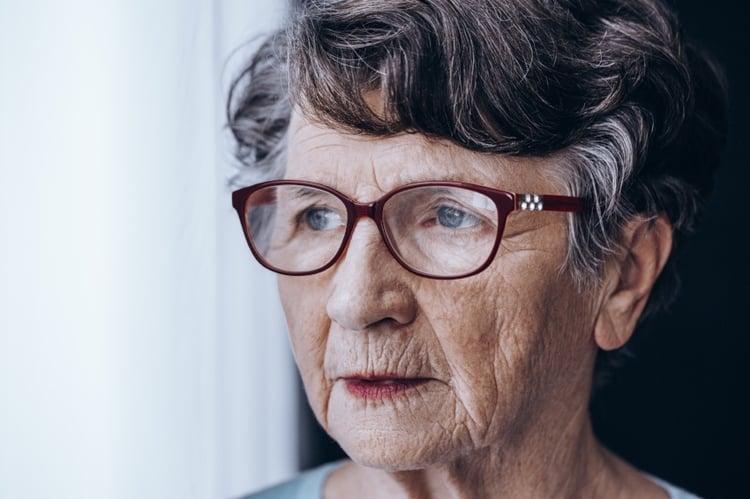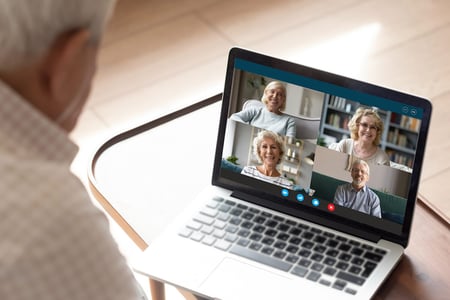
With the increase of online social communities, the evaluation of social interaction has changed considerably in the last few decades. However, one thing remains consistent - the absence of social interactions may lead to social isolation. While social isolation may not sound like a significant concern, it can increase our risk of developing depression, anxiety, and a weakened immune system.
Social isolation is largely determined by pre-existing norms of social interaction and relationships. Still, there is a growing understanding of how new experiences involving this type of pain affect our brains. In fact, the brain regions impacted by painful social isolation experiences are the same regions affected by physical pain.
In adults aged 65 and older, feelings of social isolation can directly affect their quality of life. Social isolation should be addressed immediately, and ways to become engaged with other people should be established on a regular basis.
Brickmont Assisted Living, with active communities in Milton, Woodstock, and Acworth, Georgia, understands the value of social connectivity and its impact on our overall well-being. Our communities offer a variety of social activities and events that promote engagement from residents. Here are a few powerful ways this can be accomplished.
1. Connect With Others Through Technology
As we age, our social circles tend to shrink as friends or family members move away, and aspects of our lives change. Technology is a fantastic tool that can connect us with family and friends - wherever, whenever! Computers, smartphones and displays, and tablets offer a variety of applications that make connectivity easy!
2. Volunteer Your Time
In the simplest terms, volunteering is defined as sharing. When you share (or volunteer) a type of resource, whether it is abilities, time, finance, or support, you are working to improve the quality of life for another.
Volunteering allows for social interaction and engagement, but it can also come with its own set of health benefits. According to Mayo Clinic, volunteering decreases the risk of depression, it helps us stay mentally and physically active, can help reduce stress levels, and it can give us a sense of purpose while teaching us valuable skills. A few volunteer suggestions for retirees, include becoming a foster grandparent, becoming a companion to another senior, or volunteering your time/resources at a local organization.
.jpg?width=600&name=team-of-volunteers-picking-up-litter-ESBH9JN%20(1).jpg)
Many senior living communities, like Brickmont Assisted Living, implement volunteer opportunities for residents. Our communities create activities with a purpose – whether its baking treats for others, teaching each other skills, or even quilting for different non-profit organizations.
3. Get Creative
Creating instills in each of us a sense of accomplishment. Whether it’s a story, music, or a yummy dessert, creating can provide people new and exciting perspectives on life by engaging with others. Just think of how many people gather around famous works of art and visit places of inspiration!
Picking up new skills, creative or otherwise, promotes a healthier and more engaged brain. Engaging in new hobbies and acquiring new skills can increase the density of myelin (matter in our brain that helps us perform various tasks). Brickmont Assisted Living encourages seniors to sign up for a class or join a group that meets regularly to connect with others who are passionate about the same things as you.
Understanding the Health Benefits of Socialization
No matter what chapter of life we are in, socialization is important to our health and development, and the health benefits that we reap from socialization cannot be overlooked. Some of these health benefits include:
Increased Longevity
Research has shown that our social circles impact us to make healthier decisions and develop healthier habits. Socialization and spending time with friends can improve our overall health behaviors and can lead us to try things outside of our comfort zone. Socialization has also been shown to improve our immune system, making us less susceptible to illnesses like the common cold and flu, and even some types of cancer..
Better Mental Health
The health of our body and mind are equally important, but maintaining mental health is something many may not focus on. Fortunately, socialization promotes and fortifies our mental health and helps alleviate symptoms of depression.
Lowered Risk of Dementia
The American Journal of Public Health posted a study that followed over 2,000 women, 78 years or older. The study demonstrated a direct correlation with socialization and memory; the women in the study with a larger social network had an upwards of 26% decreased risk of developing dementia.
However, it is important to note that social isolation is subjective to your social needs and desires. If you do not feel lonely, you are unlikely to experience social isolation. While socialization is important, it is vital that we feel comfortable as we socialize. Pushing yourself into uncomfortable situations may increase your socialization, but may lead to an increase in feelings of stress and anxiety.
Developing Your Socialization Skills
Developing your socialization skills may be the biggest challenge for some, but the goal is to enjoy yourself and make new friends! Here are a few tips to help you reach this goal:
Take Your Time - Depending on your personality and circumstances, you want to develop a routine that makes you feel comfortable. Start slow and try to implement one to two social activities a week. Even if they are only for a few hours, you will still reap the benefit of connecting with others.
Set Benchmarks - While it may sound odd to set social benchmarks, achieving them can help improve your self-esteem and give you a better understanding of what you’re trying to accomplish through these activities.
Ask Questions and Listen - Exchanging stories and experiences is a great way to build the foundation of a new relationship. Listening to each other and asking questions can help develop a deeper connection.
Brickmont Assisted Living communities throughout Georgia are dedicated to overcoming social isolation in seniors. Our communities host frequent social, physical, and educational events that provide residents with ample opportunity to engage with others. We understand the importance of socialization, which is why we aim to make our communities socially connected, where our residents engage in activities they enjoy while being surrounded by friends with similar interests.
Through addressing the social needs of our residents, we see healthier and happier communities. Want more information on how you can get involved and make some new friends? Follow Brickmont Assisted Living on Facebook!
This blog was updated on March 15th, 2020.




.png)